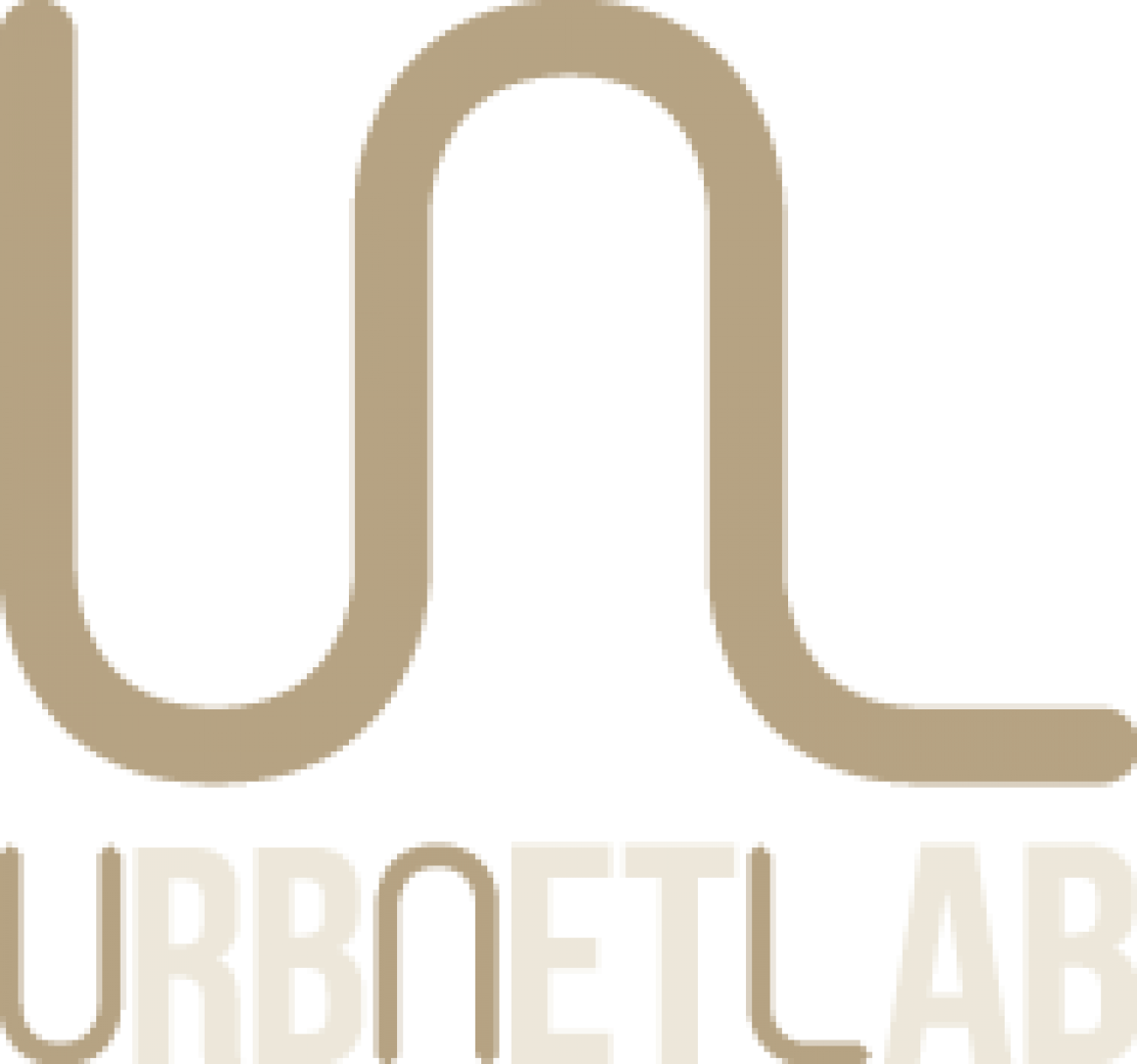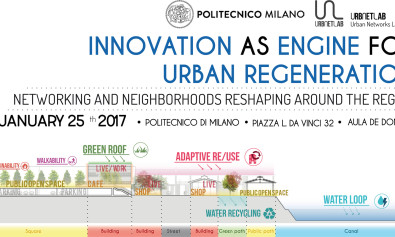UrbNetLab provides research and consultancy services to all levels of public administrations, and to private initiators in the field of implementation planning. Its scope includes assisting in the forecasts for public planning, based on structural and/or strategic plans, received from regional governments, or from the simple requests of developers, administrators, economic entities, and other stakeholders of various types.
UrbNetLab si occupa di attività di ricerca e consulenza per amministrazioni, ad ogni livello e operatori privati nel campo della pianificazione attuativa. E’ suo scopo comprendere come coadiuvare il processo di attuazione delle previsioni urbanistiche, discendenti da piani strutturali e o strategici, da piani sovralocali, o da semplici intenzioni di operatori, amministratori, soggetti economici, attori di varia natura.
The laboratory offers consulting services that enable understanding, and which are needed to make forecasts a reality. These include: selecting the best implementing instrument; assisting in defining the system of financial responsibility; defining standards; and defining the works related to each urban plan. The urban planning instrument broadens itself to include all the relationships on the path to implementation that can contribute to its success: from the public opinion in local communities which are involved in the development; to the creation of the business plan, together with object of the development; from the relationship between the forecasts and the valuing instruments (whether VAS or VIA); to the design of the physical changes that the implementation will bring to the territory; to a visual aid showing the expected financial activity at a given location. In many instances, UrbNetLab’s activities have resulted in supporting public administrations in their implementing difficult plans, or plans which had been set aside for a long time, and in exploiting these as occasions to augment the public heritage’s endowment, improve connections, swell the public coffers, and in may cases it has permitted the guidance of an implementing method which has brought excellent results in the formal building and overall. The result depended upon using a master plan as a central tool for forecasting, for governance, and for the administration of the development.
Il laboratorio offre attività di consulenza nel comprendere quali azioni debbano condurre all’attuazione delle previsioni, progettando la più corretta natura dello strumento attuativo da predisporre, assistendo nella definizione del sistema degli oneri, degli standard, delle opere connesse ad ogni previsione urbanistica. Lo strumento urbanistico si allarga a comprendere tutte le relazioni che possono portare successo ad un percorso attuativo: dal parere delle comunità locali che vengono interessate dalla trasformazione alla costruzione del business plan insieme al soggetto attuatore delle trasformazioni, dal rapporto tra le previsioni e gli strumenti valutativi (quali Vas o Via) al disegno delle alterazioni fisiche che l’attuazione delle previsioni porta al territorio, dal disegno delle opere connesse allo studio delle interazioni economiche che una previsione può portare ad un contesto. In molti casi, l’attività di UrbNetLab ha consentito di supportare le amministrazioni nell’attuare previsioni difficili, o che da tanto tempo non venivano realizzate, e sfruttandole come occasione per aumentare la dotazione di patrimonio pubblico, migliorare le connessioni, ottenere buoni tornaconti pubblici; e in molti casi ancora ha permesso di guidare il percorso attuativo a risultati formali e compositivi di eccellenza, attraverso l’utilizzo del masterplan come strumento centrale per la previsione, il governo e la gestione delle trasformazioni
The laboratory works on these things, and on research parallel to its consulting services, analyzing, in fact, the implementing processes between plan forecasts, wish lists of administrations and expectations of implementing initiators. Whether it has to do with public administration or private sector projects, it is the moment of implementation that provides the rationale, or not, to other forecasting frameworks, other strategic scenarios, and to the structural plans that territories provide. It is the moment of implementation, when it is put on the table (that is, if it were not done before with the knowledgeable use of the anticipatory master plan of the construction on the planning scenarios) that all the problems and all the difficulties encountered in carrying out the plans emerge. The recent financial crisis, which has hit cities and their natural process of building and rebuilding hard, has made us fully understand how the implementation phase leads to economic and social comparisons in regard to plans, clarifies the costs and burdens, and shows the development changes on the physical assets of the territory. Very often, precisely the distance between the expectations of a building authority and the desires of the initiator lead to a stumbling block, or the crisis, of an implementation plan, which in turn establishes the non-viability of the plan. In this way, the scenario or the expressed desire in broad ranging plans remains on paper or the principle scope of planning amounts to less than what was envisioned.
Il laboratorio si occupa cosi, nella sua ricerca parallela alle attività di consulenza che offre, di analizzare proprio i processi attuativi tra previsioni di piano, desideri delle amministrazioni e aspettative dei soggetti attuatori. Sia che si tratti di previsioni di natura pubblica o privata, è il momento attuativo che dà ragione o meno ai quadri previsionali, agli scenari strategici, ai piani strutturali di cui i territori si dotano. E’ il momento dell’attuazione che mette sul tavolo, a condizione di non averlo fatto prima con un sapiente uso anticipatorio del master plan nella costruzione degli scenari di pianificazione, tutte le problematiche e tutte le difficoltà della realizzazione delle previsioni. Con la recente crisi economica che ha investito le città e il loro naturale processo di costruzione e ricostruzione, si è compreso appieno come proprio la fase dell’attuazione apra il confronto economico e sociale circa una previsione, ne denudi i costi e i pesi, ne evidenzia la portata di trasformazione sugli assetti fisici del territorio. Molto spesso, proprio la distanza tra le aspettative di un’amministrazione e i desideri di un soggetto attuatore determinano il blocco o la crisi di un percorso attuativo, che determina a sua volta la non attuabilità della previsione. Cosi, lo scenario o il desiderio espresso nei piani di vasto respiro resta sulla carta e lo scopo principale della pianificazione viene meno.
UrbNetLab studies and researches, on the one hand, the most efficient instruments for the management of the implementation of plans, and for the management of the exquisitely political economic side; and on the other hand, the methods, and the reasons behind the physical and architectonic dimensions, and once constructed form part of the process of the authority’s development plan. Identified in this manner, the instrument of the master plan is a good ally, but on the condition that it may bring about strong relationships, not just in the final outcome of the implementation process, but also in the initial stages of the general planning, operating as a tool to anticipate the expected results from every development or plan. Anticipating the formal output, it is, above all, a tool for governing the output in terms of resources, returns, costs and benefits.
UrbNetLab studia e ricerca da un lato quali siano gli strumenti di gestione dell’attuazione delle previsioni di migliore efficacia, sia per la gestione della parte ecomomica che più squisitamente politica, dall’altro quali i metodi perché la dimensione fisica, architettonica e poi costruita sia parte del processo di governo della trasformazione. Identifica così nello strumento del masterplan un buon alleato, ma a condizione che possa strutturare relazioni forti non solo con l’esito finale del processo attuativo, ma anche con i primi stadi della pianificazione generale, fungendo da strumento di anticipazione dei risultati attesi da ogni trasformazione o previsione. Sia anticipandone l’esito fomale che, soprattutto, governandone gli output in termini di risorse, ricadute, costi e benefici.
For these reasons, UrbNetLab actively collaborates with experts on economic forecasts; on the creation of business plans; on the elaboration of strategic plans; and on definitions of infrastructure and environmental plans, with the knowledge that the outcome of a local authority plan, brings great benefits on many levels and it does not in any way impinge on existing resources.
Per queste ragioni, UrbNetLat attiva collaborazioni con esperti in previsioni economiche, costruzione di business plans, elaborazione di scenari strategici, definizione di quadri infrastrutturali e ambientali, consapevole che il miglior risultato dell’attuazione per un contesto locale porta benefici a piu livelli e non sottrae risorse esistenti a nessun livello.
UrbNetLab has initiated several international collaborations, mostly in America. America because of its ability to maintain a decisive level of consonance between plans and final outcomes; and its ability to create rich and accurate implementation tools that gauge various aspects of planning. The most important of which are: consensus building in the localities which are about to undergo change, the creation of frameworks for the precise modeling of economic feasibility, and the administration of the formal outcomes, both in the development area, which takes into account the architectural aspect, the networks of roads, and the system of green connections.
UrbNetLab ha attivato diverse collaborazioni internazionali, soprattutto con il contesto americano, studiato per la sua capacità di mantenere un deciso livello di corrispondenza tra previsioni ed esiti finali e di costruire strumenti attuativi ricchi, attenti a molti aspetti tra i quali, soprattutto, la raccolta del consenso delle comunità investite dei processi attuativi, la costruzione di quadri di fattibilità economica precisi e il governo degli esisti formali sia nell’ambito della trasformazione che intorno, interessando il livello architettonico, la rete dei percorsi e il sistema delle connessioni verdi.


